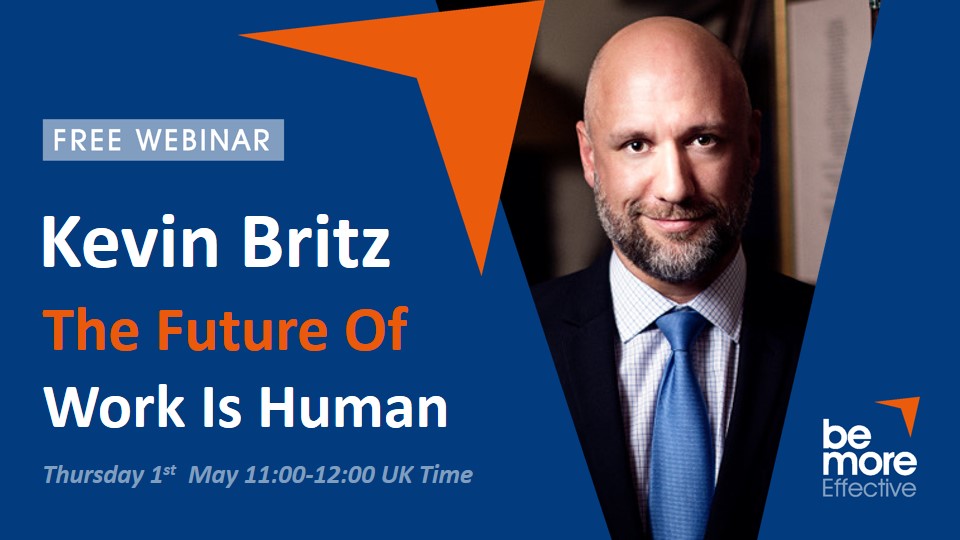How Not to Become a Pariah Employer

Pariah employers. You know who they are. Maybe you’ve even worked for one. But what makes them someone that no one wants to work for?
Here are several reasons. See how many of them are true of you.
Hire slow; fire fast
It’s amazing that these two clauses are even seen together. There’s no virtue in either statement. Not only that, but if you take the trouble to evaluate someone to the extent that you’re slow to hire them, then why would you dismiss them without equal consideration?
It makes no sense.
Keep score
Believe it or not, there are still people around who keep score. They use expressions such as “you owe me one.” If they do you a favour, then watch out, because one day they’ll come to you expecting you to do one for them in return.
The Law of Reciprocity means that you will feel some emotional pull to return a favour to them, but people who keep score want to choose the time, the place, and the circumstances, and you can bet that when they do, it won’t be favourable to you.
To avoid becoming a pariah employer, you should instead be willing to share what you have without keeping track of who you share it with.
Generosity is the opposite of score keeping.
Know-it-all
Pariah employers know everything, or at least they think they do. And they really aren’t interested in anyone else’s ideas about anything. Why would they be? To them, your job is to come to work, do what you’re told, and then do the same thing tomorrow, and then next day, and the next until you retire or your services are no longer required. And the latter may come sooner than you think if you try to change that.
Thing is that people don’t trust managers who think they know everything. That’s because they know that no one is perfect. And so if you’re unwilling to show that you don’t know some things or that you have some weaknesses, then people will think that either you’re lying to them
Why would anyone want to work for someone who couldn’t be truthful with them?
Talks about others
Want to know who the folks are who talk about you when you’re not around? It’s the same ones who talk about everyone else when they’re not around. It’s the gossipers, in other words, the folks who keep the grapevine growing.
You need to be above all this and to a certain extent keep it from spreading.
People will talk, but you need to create an environment where they talk their colleagues up; not down. Gossip is never complimentary.
Of course, a pariah employer doesn’t understand what confidentiality is and willingly spreads gossip as much as anyone else. More so, perhaps, because they have the “goods”.
Why would they do this?
Because it makes them popular with certain people. You scratch my back, and I’ll scratch yours. Nudge, nudge. Wink, wink.
It’s all about ME
Pariah employers want the spotlight of attention on them . . . all the time. No one else deserves it because no one is as good as they are or can do what they do, so these people believe.
Spode, of Jeeves and Wooster, was like this in his black short trousers. He made the most ridiculous statements and was quick to bully the “little guy.” It’s why most people didn’t want to be around him, and why no one wants to work for someone like that.
My idea, and my efforts
Ever been around people who believed that the organization couldn’t survive without them, or that the bottom line was solely down to their own efforts? Such people discount the work of others altogether. Of course, it doesn’t stop them from hiring people to do “lesser” work, but they still don’t respect those who do it.
No one wants to work for someone who doesn’t respect them. When employees are made to feel expendable, they immediately start to look for a place they can go to where their employer will value what they do and respect them for doing it.
Intolerant of people less capable than themselves
Now and then you’ll hear someone say that they don’t expect anyone to do more than they do, except that what they do puts them at the top of the talent tree.
If you have an IQ of 145, for example, then 98% of the people you meet will be incapable of doing what you do, and that’s just one factor. It doesn’t take into account the specialized skill and experience that got you where you are. And so it’s unfair to expect people who don’t have what you have to do what you have done.
Pariah employers don’t care. If they can do it, then they see no reason why anyone else can’t, and they don’t mind telling you - often.
Hate criticism
The worst employers detest criticism, and those who give it. They think that they’re above it. How dare anyone should find fault in what they do!
Such people are arrogant about their own abilities and lack empathy for others. In fact, they really don’t think of others that much.
With this comes an unwillingness to be held accountable for anything. Where there’s no accountability, there are often double standards. One for them, and one for everyone else. And that’s because they hold themselves to a lesser threshold than they do for others. They allow themselves exceptions that they wouldn’t dream of affording to anyone else. And that’s why they never admit to mistakes. If a mistake was made, then someone else caused it, either by what they did, what they said, or both.
Humility isn’t in the vocabulary of the pariah employer. Their motto is that when the going gets tough, the tough get going. There’s no point in owning error.
This review of some of the characteristics of pariah employers has been a little bit tongue-in-cheek, though much truth has been articulated.
How did you fare?
And more importantly, how can you create a place where people want to work for you?
Take a personal interest in your people and care for them
Regardless of the size of your organization, big or small, you need to take a personal interest in the people who work for you.
At the very least, you should learn their names. This may seem impossible if there are thousands of people in your charge, nevertheless, you need to know the names of everyone with whom you have contact. That means that if you come in the door with other employees that you don’t normally see, that you must take the trouble to introduce yourself and to chat a little bit. That kind of interaction will make people bond with you and your organization.
It’s indescribable just how powerful that can be.
Be generous
Generosity often goes unnoticed, and it should be that way with you. You don’t do it to be recognized by others, as with an oversized check donated to Children in Need. You do it on the quiet. The people you help will know that you’ve been generous, and that should be enough reward for you.
The attitude of generosity will carry over into everything else that you do, too, with your time, for instance, and not just your money.
And if you want to keep score, then do so with yourself. Aim to out-give others, not so that you can pat yourself on the back for doing so - because let’s face it, you have more means than anyone else - but because you never want to be parsimonious, especially because you’ve been given so much.
Be open to the ideas of others
You don’t know everything, nor can you. So there’s no point in pretending that you can. In fact, sometimes it’s worth playing a bit dumb so that you don’t intimidate others.
When someone comes to you with an idea, even if you’ve heard it all before, you need to give that person your full attention, ask questions, and if necessary direct them to other sources. But never shut them down by telling them that you already know whatever it is that they’re telling you. If you do that, then a time will come when they won’t tell you anything, and you’ll wish that they had.
If what they have to offer is critical, or sounds critical of you, then listen to understand. Whether you believe it to be true of you or not doesn’t matter. It’s the perception of the person who is telling you. And that’s valuable feedback that will enable you to put things right and make things better.
Respect confidentiality
You should assume that anything you’re told inside your office is confidential. If it won’t be, then you need to make it clear to all concerned that you intend to pass along what you’ve been told, and you must do that before you’re told.
The first time you blab something that another person thought was confidential, you will lose the trust of that person quite possibly forever. Relationships in organizations depend on trust.
Make sure that you’re trustworthy.
It’s all about them
Anytime there are kudos for work that’s been done well, do your best to defer the honours to those who support you. Even if your work for yourself, with no employees, you should remember that you didn’t get there by yourself. All successful people have stood on the shoulders of others at one time or another, and you must recognize that this is true of you, too.
You lose nothing by sharing the credit, or even giving all of it to others.
Have you ever attended a classical music concert, maybe at the Proms, where there has been a soloist? The most gracious soloists will applaud the orchestra. That’s because they know that they couldn’t have displayed their virtuosity without them.
The same thing should be true of you.
Remember, it’s their ideas and their efforts that have enabled you to do what you do. If you didn’t need them, then you wouldn’t have hired them in the first place, and they certainly wouldn’t still be there.
Recognize that even the dullest tools in the box can make a contribution
Do you have any dull tools in your toolbox? If so, why do you have them? Is it because they have sentimental value, or is there some other reason?
Whatever it is, it’s important because if you didn’t care - if you never intended to use them again - then you’d throw them away, right? So the fact that you still have them means that they’re still of some use.
Although people are of inestimable value, whether their job is big or small, they provide an important service in your organization. And that’s why they still work for you.
It’s inexcusable to be a pariah employer. Notwithstanding the fact that it’s unprofessional and discourteous to treat people in that way, there’s a mountain of research that demonstrates that it’s not only counterproductive, but threatens your bottom line.
If you or your company has a reputation for being a place to avoid by those who want a job, then you must take all steps necessary to correct that perception.
And whether this is true of you or not, make it your goal to make the list next year of the 100 Best Companies to Work for in the World.
Want to know more about how to avoid becomin a pariah employer? Contact me here
For more information please send a message via the Contact Us Page. Or you can register for an upcoming webinar.


